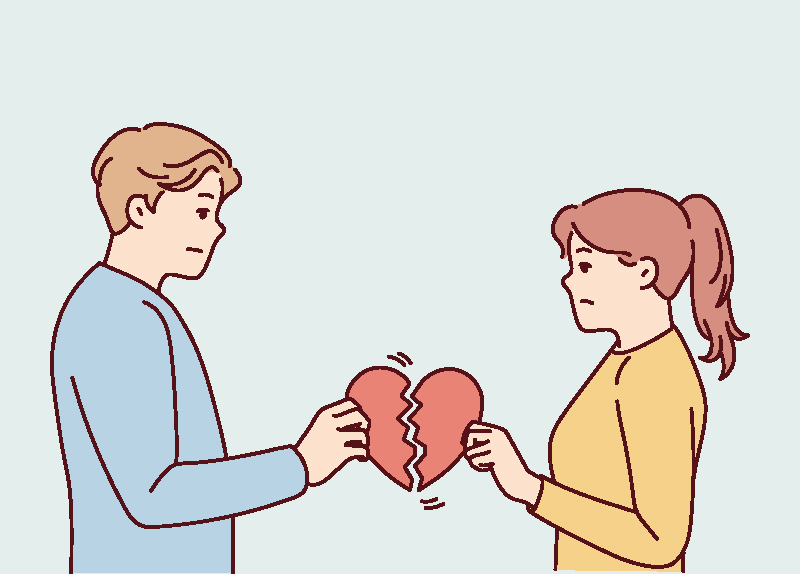
It turns out there may be scientific reasons why heartbreak is so painful. The rush of negative emotions that severing a relationship can trigger comes from the hormonal changes in our bodies.
Falling in love releases hormones like the “cuddle” hormone oxytocin and the “feel-good” hormone dopamine. But when you fall out of love or break up with someone, these hormones drop while stress hormones cortisol, adrenaline, and noradrenaline increase. In a 2011 study, MRI scans of people recently dumped by their partners showed parts of the brain associated with physical injury lighting up when the participants saw a picture of their ex.
The neurobiological effects of heartbreak can even lead to physical symptoms like chest pain and panic attacks. In rare cases, a broken heart can induce a medical condition known as takotsubo cardiomyopathy. It is a heart condition that occurs due to high-stress levels or intense emotions. It can cause temporary changes to the way the heart pumps blood, causing chest pain. It has been reported in women whose spouses or pets have died or in postmenopausal women who experience emotional shock.
One of the reasons for this physiological response may be because of the way we synchronize with our partners. When you live with someone, your bodies co-regulate. Your heartbeats regulate when asleep, and your cortisol levels, breathing, and brain waves sync up. So when your partner leaves, your body and brain react to that subconsciously. There’s an evolutionary reason for this reaction as well. Because being alone meant more chances of facing a predator and getting injured, humans evolved to feel unsafe when alone. Even now, we tend to get uneasy whenever there is a dramatic shift in our relationships.